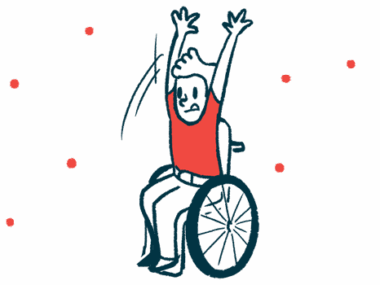Dragonflies, Tiny Tables, and Big Feelings: Exploring Sexual Wellness Accessibility
Written by |

I have a fear of falling.
It’s not from the great heights of suspension bridges or tall buildings. No, it’s much more humble than that.
I fear I will fall off the tiniest exam room table at the gynecologist’s office. And during my recent women’s wellness visit, this was only one of the discomforts invading my mind as I maneuvered through the morning’s schedule.
I’d entered the large healthcare complex by way of automatic door openers, elevators, and a barrier-free layout, yet I soon found myself confounded by a lack of true accessibility at a facility that frequently encounters patients who use wheelchairs or other mobility aids. Lack of accessibility extends far beyond the structural components of a building, and I always cringe when confronted with this type of failure, as if it were the first time I’ve experienced it. I’m not sure I’ll ever become numb.
In this instance, as I approached the check-in desk in the waiting room, an appointment coordinator sat valiantly on a throne within the confines of a faux-wood citadel. She peeked down at me through glasses perched on the tip of her nose, never fully revealing her face from the shield of her computer screen. I struggled to communicate with her, desperately trying to balance the vocal dignity of my personal health information with her inability to breach the fortress and descend to my tonal level.
Behind me, the line of waiting patients grew. Within me, the line of patience stretched thin and ragged.
After being escorted to an exam room with my caregiver, I pivoted my wheelchair to face the medical assistant. Barely missing the surrounding objects, I interjected with a sweet demeanor, thick as honey, that concealed my mood in a deceptive manner: “Would you, by chance, be willing to check if there are any procedure rooms available? I would so appreciate it. I know they’re much more spacious, and since I’ll be transferring, we’ll need all the space we can get.”
She exited to check for vacancy and within moments, relocated me to a larger room. While my healthcare team is accommodating where possible, they work with what they have for resources — and sometimes, what they have leaves much to be desired in terms of accessibility.
In the procedure room, I awaited two patient-transfer specialists whose role is to safely assist patients from their wheelchairs to the exam tables. I preferred my caregiver be involved, and they reluctantly allowed her to step in and show them what specific ways are most comfortable to move my body. Knowing I’d be lying on a table seemingly no bigger or more supportive than three popsicle sticks glued together, I advocated for optimal comfort in all areas I could foresee.
Gynecology instruments poked and prodded my vagina while everyone around me attempted nonchalant small talk. I grimaced at the discomfort of my pride. I looked up at the pink dragonfly mobile dangling from the ceiling above my tense body on the exam room table and dreamed a little dream of envy for the dragonfly. Growing wings in that moment, I could close my legs and ascend from this wretchedly uncomfortable table.
I wasn’t unsettled because of the intrusive nature of the exam, or because there are never fewer than five people involved in my well-woman visits, or because the table was unacceptable for someone with SMA and significantly limited mobility.
I was uncomfortable because I felt unseen in the eyes of a healthcare system that is tasked and entrusted with helping me to live my best life. I felt like an afterthought in a situation where my magic, autonomy, and sexual well-being as a woman was supposed to bloom instead of wilt.
But, I wasn’t a dragonfly. I couldn’t defeat or defy gravity any easier than I could catch myself from falling, or accomplish this routine Pap and pelvic exam like the majority of patients shuffling in and out of exam rooms that day.
And falling would be quite a trauma.
I thought about the scars on the exposed skin of my hips and pelvis. I’ve claimed them as my own and held them in high regard for a long time now. Even if I could delete the traumas of my life from my memory, would my instinct to bravely advocate be engrained in the tissues of my body and soul? Would striations of resilience glimmer along the voluntary muscles that persevere without atrophy? Would creativity and resourcefulness enrich the blood that pumps through the chambers of my heart?
I’m not meant to be the dragonfly. But I can channel its globally recognized fable of adaptability, self-awareness, transformation, and commitment to discovery of life’s deeper intricacies. I can recalibrate my negative thought process, allowing the experiences of my days to stoke the fire within me and fiercely advocate for quality sexual healthcare surrounding disabled women.
***
Note: SMA News Today is strictly a news and information website about the disease. It does not provide medical advice, diagnosis, or treatment. This content is not intended to be a substitute for professional medical advice, diagnosis, or treatment. Always seek the advice of your physician or other qualified health provider with any questions you may have regarding a medical condition. Never disregard professional medical advice or delay in seeking it because of something you have read on this website. The opinions expressed in this column are not those of SMA News Today, or its parent company, Bionews, and are intended to spark discussion about issues pertaining to spinal muscular atrophy.





Leave a comment
Fill in the required fields to post. Your email address will not be published.